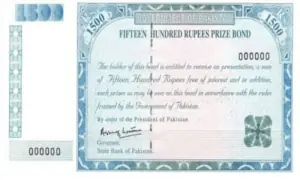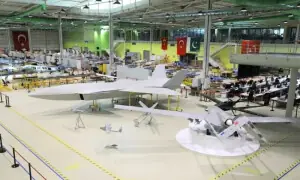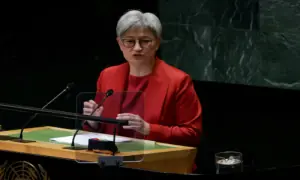$25 billion textile export target for five years set
 The government is all set to announce the first-ever textile policy on Wednesday (today) with export target of $25 billion for the next five years after its approval at the special meeting of the Cabinet to be chaired by Prime Minister, Yousuf Raza Gilani.
The government is all set to announce the first-ever textile policy on Wednesday (today) with export target of $25 billion for the next five years after its approval at the special meeting of the Cabinet to be chaired by Prime Minister, Yousuf Raza Gilani.
The textile policy would introduce a technology support fund through which mark-up subsidy on loans for the import of capital goods would be given to textile industry. Other initiatives would also be presented to the Cabinet and their approval would be sought, official sources disclosed on Tuesday.
Textile Investment Support Fund of Rs 40 billion had already been announced in the Budget 2009-10, of which 67 percent would be spent on textile and clothing industry for consolidation and value addition of the sector. Besides setting up of textile and garment cities, training institutes for human resource development would also be funded. Furthermore, the policy would also stress on utilities and setting up of labs and create human resource fund.
New policy measures are taken to diversify products and markets to enable exporters to move out of traditional markets and capture new ones. The Ministry of Textile (MINTEX) has proposed duty free import of raw materials, which are used in the manufacturing of special textile products, in the textile policy.
Sources said, "The term "Technical textile raw materials" covers items like fabrics used in the highly processed form. For example such materials are used in the manufacturing of aircraft seats." Sharing salient features of the new textile policy, the sources said.
"The major thrust of the Textile Policy will be to enhance domestic capabilities and capacities for efficient use of resources through skill development, technology up-gradation and provision of infrastructural facilities. Measures are also envisaged for diversification of fiber usage and mix."
In the new policy, it is proposed to hire foreign consultants to initiate technical textile projects and also for the training of manpower. Technical textile laboratory would also be established under the research centre. More than 80 percent of industry is working in unorganised sector and with the increase in global competition it has become the requirement of the day to operate in economies of scale and develop strategic partnerships for long term benefits.
The policy will focus on establishment of linkages among various textile sub-sectors, both upstream and downstream, by ensuring their healthy and harmonious development. Various integrated and related plans and programmes to be undertaken for the development of spinning, weaving knitting, hosiery, dyeing, finishing and the stitching industry on priority basis.
In the policy one of the prime objectives is to establish research centrescouncils for every sector of the textile value chain. The councils will carry out product development, design development, cost effective operations, best operation practices and testing of the products. These research centres must be accredited with international research organisations so that there results can be accepted in international market.
To develop sense of ownership in the project and ensure smooth operations, MINTEX has developed the strategy of public-private partnership. MINTEX needs to develop comprehensive plans to create awareness in the textile industry on specific issues relating to policies, management, markets, new products, operations, compliance, and branding and supply chain management. This task may be accomplished by conducting series of workshops and seminars and creating platforms for awareness dissemination in the said areas.
Special incentives will be given to the units working on 85-15 female-male workforce ratio to solve the issue. Separate training institutes will be developed all across the country for ladies to enhance their skills in industrial stitching, sewing and garment manufacturing. Women will also be facilitated in renting out areas in garment city projects.
Technical textile would be promoted by inviting the internationally recognised companies to start manufacturing technical textile products in Pakistan. Under the new policy, there is a plan to help create model garment factories, introduction of a new scheme whereby a textile park would be declared special economic zone, setting up of a weaving city and formation of a textile research and compliance organisation.
It also includes audit of processing industry for efficient and economical use of precious chemicals, setting up of state-of-the-art textile laboratory at NTU Faisalabad, horizontal and vertical integration to balance textile value chain, specialised garment training institute for women, one-window facility for provision of required infrastructure and standardisation of machinery and equipment.
MINTEX will highlight the areas which require multiple subsidies ie effluent treatment plants, testing machines and quality monitoring machines etc. About half of industrial stitching machines are installed in cottage industry and they are short of skills to prepare quality products and increase their efficiencies.
By making apparel house, MINTEX would synergize its efforts and also provide them the opportunity to excel in international market. The yield of spinning industry will increase, which will take this sector out of the current crisis. The proposed policy would cater for the short, medium and long-term measures to increase production of cotton, improve value-added products, productivity and competitiveness of the textile sector.













Comments are closed on this story.